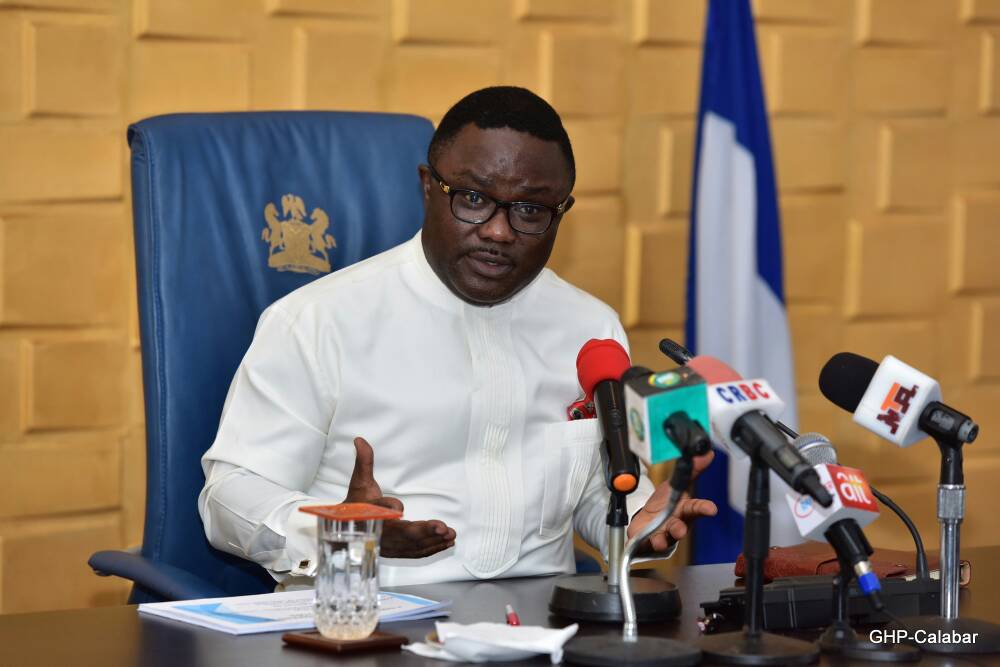Niger Delta
Ayade Wants Oil Producing Status Of C’River Addressed

Cross River State governor, Prof Ben Ayade has tasked National Assembly to handle related Petroleum Industry Bill (PIB) and other issues related to the bill with circumspection to avoid contentions that are likely to trail its ultimate passage into law.
Governor Ayade made the call while addressing the Joint Committee on Petroleum Industry Bill members led by its Chairman, Senator Sabo Muhammed Nakuda, during a courtesy call at the Governor’s Lodge, in Calabar,
Ayade said owing to the delicate and controversial nature of the bill it remained a subject for further analytical dissection.
Specifically, Ayade flayed the focus of the bill which he noted, centred more on oil-bearing communities, with scant regard to communities that suffer the direct impact of exploration activities.
His words: “In spite of the haste with which we want to drive the PIB, we must exercise ecclesiastical caution to ensure that the PIB bill does not throw up other developments that will bring about other contentions and continuous struggle.
“While we make haste, we must show caution as the people of Cross River State have a very strong feeling that the PIB bill must address their unique concern,
“The PIB bill focuses so much on producing communities without emphasizing on the adversely impacted communities. We are the most impacted because all the oils within the “Akpami” fields find their way into Cross River State.
“Right here where you sit, directly behind my house here, is the Calabar River, which empties into the Atlantic Ocean directly into the Akpami wells. One of those wells is just 36 kilometres from here. When there is a spill, where does it go to? It comes here,” he said.
Ayade who decried the plight of some of his coastal subjects whose main occupation is fishing, said the people who depended on fishing had been completely dislocated from the oil-producing states.
Ayade said: “Our people depend on fishing, our state has been completely dislocated from the oil-producing states.
“I do not understand how on earth Edo, Delta, Bayelsa, Rivers, Akwa Ibom States, as well as Cameroon will have oil and only Cross River will be a non-oil producing state.
“As a professor of science and one who had worked in the oil industry before coming into politics, there is no science, no spiritualism, no magic that can explain this except politics.
“The PIB must address that. You cannot even in law and even biblically, take from a brother who has so much to give to a brother who has little. But to take from a brother who has nothing to give to a brother who has more is a political issue that the National Assembly and indeed the PIB must cure.
“A good example is how Cross River State gets less than two billion naira allocation in a month while a sister state will be dealing with twelve, thirteen billion. Such an unequal distribution of wealth exacts pains and anguish. It is unnatural and that is the essence of the National Assembly.
“For an egalitarian distribution of resources, this nation can only become one when there is fairness, equity and justice. That’s all we seek and that’s all we crave as a state.
“As a state, we feel pained. I have been on the same downstream Committee. I asked what is the petroleum consumption of Cross River State? It is near nothing because they have kept us in abject poverty. We have been reduced to want in body, spirit and in the soul.
“This is a great opportunity for us as a people to say if you are making a new law, please whatever is the revenue, whatever are the taxes ensure that the price regulation you give to the oil industry should also be commiserated to what the state consumes”.
Niger Delta
NPC Unveils Digital Registration System In Delta

Niger Delta
Police Uncover Suspects’ Armoury … Recover Weapons In Delta

Niger Delta
Police Caution On Lawless Protests On Court Matters In A’Ibom

-

 Education5 days ago
Education5 days agoElga boss tasks law students on academics strides
-

 News2 days ago
News2 days agoAmend Constitution To Accommodate State Police, Tinubu Tells Senators
-

 Politics2 days ago
Politics2 days agoSenate Urges Tinubu To Sack CAC Boss
-

 News2 days ago
News2 days agoDisu Takes Over As New IGP …Declares Total War On Corruption, Impunity
-
Business2 days ago
President Tinubu Extends Raw Shea Nuts Export Ban To 2027
-
Business2 days ago
Crisis Response: EU-project Delivers New Vet. Clinic To Katsina Govt.
-
Business2 days ago
President Tinubu Approves Extension Ban On Raw Shea Nut Export
-

 Business2 days ago
Business2 days agoPENGASSAN Rejects Presidential EO On Oil, Gas Revenue Remittance … Seeks PIA Review

